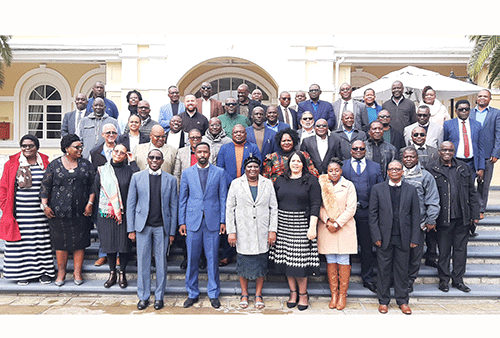SWAKOPMUND – Namibia is racing against time to fully comply with anti-money laundering (AML) and countering the financing of terrorism (CFT) regulations to avoid it from being grey-listed by the Financial Action Task Force (FATF), a global money laundering and terrorist financing watchdog.
Namibia has until 30 June to make these amendments.
This comes after a report from the Eastern and Southern Africa Anti-Money Laundering Group (ESAAMLG) found that Namibia was not in line with some global best practices when it comes to AML and CFT regulations related to the legal framework and the successful prosecution of financial crimes.
FATF sets international standards that aim to prevent these illegal activities and the harm they cause to society. As a policymaking body, the force works to generate the necessary political will to bring about national legislative and regulatory reforms in these areas.
As a result, members of the National Council gathered in Swakopmund to workshop the proposed amendments and new bills that were highlighted for reform during the 2021/2022 peer review.
“If we don’t take concrete actions, that country can get grey-listed – and this can have negative implications for the country, as the world rest of the world can be cautioned in terms of doing business with Namibia,” said Bank of Namibia deputy governor Leonie Dunn during the opening of the three-day workshop.
However, she said, Namibia can meet the deadline, as the country’s laws are robust even though they are not updated.
According to her, the task at hand requires a careful balance between ensuring Namibia remains fully aligned and compliant with international Anti-Money Laundering and Combating the Financing of Terrorism and Proliferation Financing (AML/CFT/CPF) treaties and standards.
At the same time, it will ensure the most vulnerable Namibians are not financially excluded from the financial services sector through this prevention and combating compliance efforts.
“Hence, greylisting is 100% preventable, as safeguarding the stability and integrity of the Namibian Financial System is a matter the Bank of Namibia and government regards in a most serious light,” Dunn said.
Also speaking at the opening, chairperson of the National Council Lukas Muha said the situation Namibia finds itself in cannot be delayed, as it is unavoidable.
“Thus, we are expected to make the necessary amendments to some existing laws – and if possible, craft brand new ones. It is important to note that we are living in a globalisation era that is so interdependent in almost all aspects of life – and these bills serve to protect and regulate financial activities – not only for the government but for our citizens and those we conduct business with,” he said.
Namibia needs to amend 11 laws that are already in place and come up with two new ones, as the country needs to demonstrate the effectiveness of its anti-money laundering and terrorism financing legislation.
The country needs to submit a report to FATF on whether it meets the necessary requirements. The report would be assessed by September 2023.
In February 2024, Namibia will know whether or not it is going to be grey-listed.


